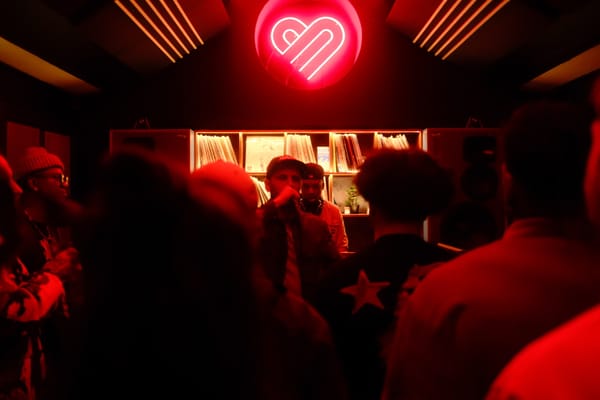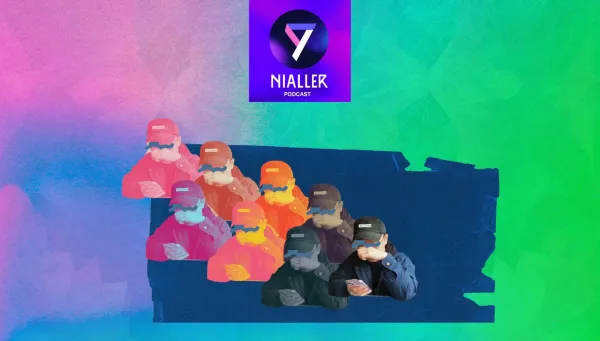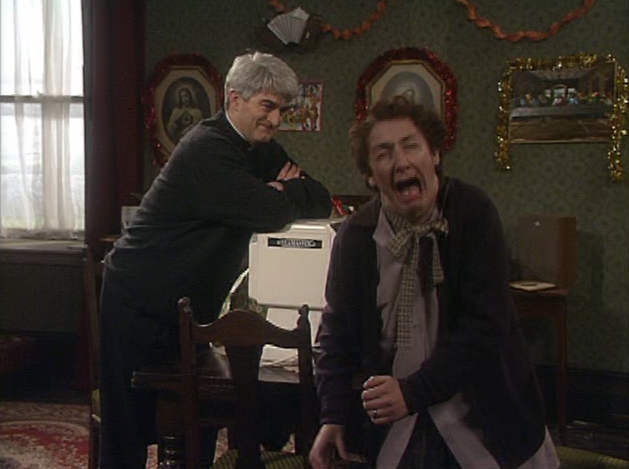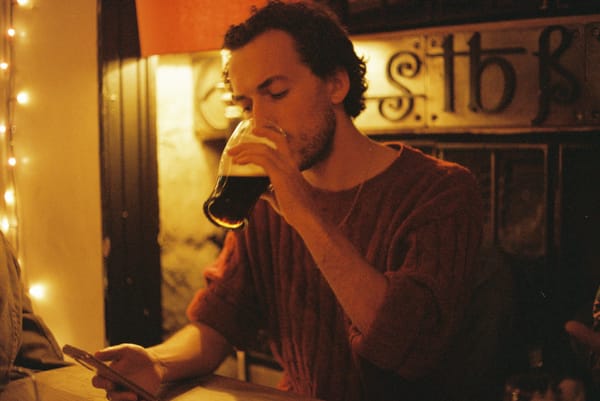fuckin’ ‘diddly-diddly-aye’: assorted notes on Irish music at the end of 2024
Getting through some writer's block with a good old-fashioned rant about an interview from 2019... although it's a weirdly optimistic one. With praise for new music by Pippa Molony and RÓIS, among others.
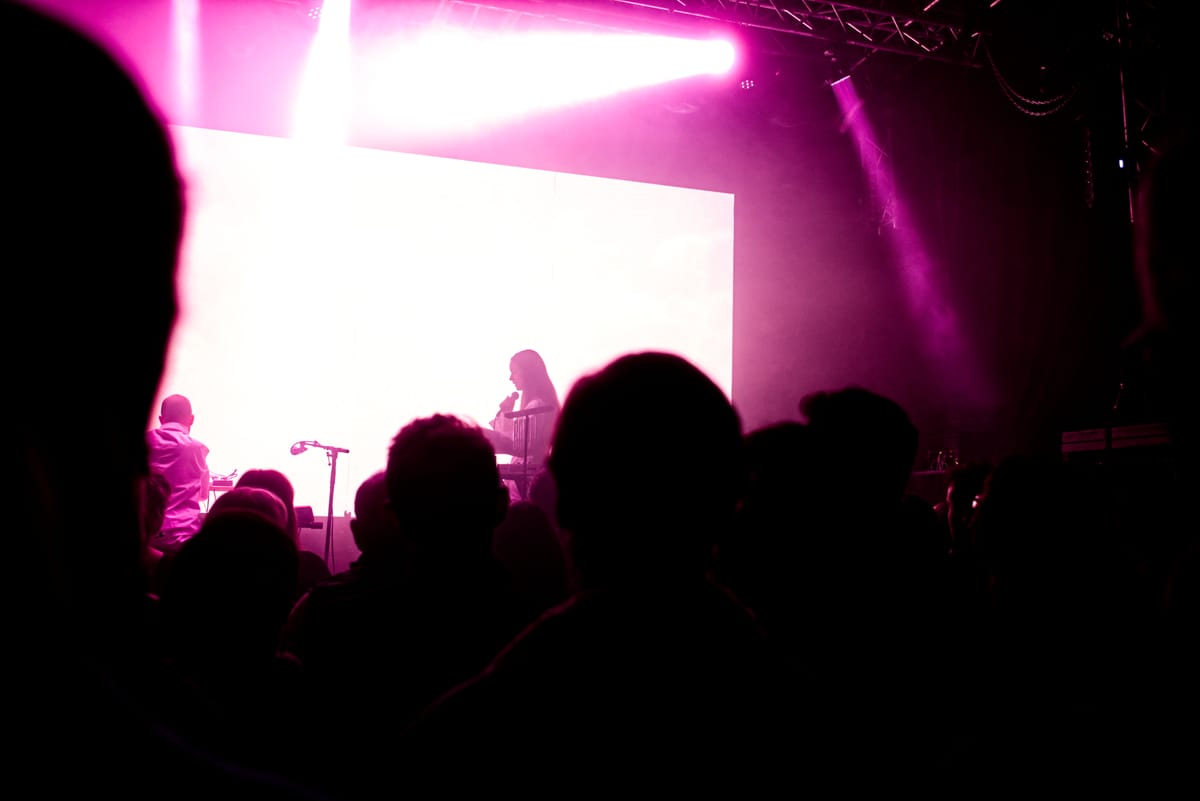
I've had a bit of writers block on what to do with Fourth Best after the two interviews; I'd like to do more to move them forward, like getting a place to record up and running and getting more people on board. But I've still been rolling out to gigs with a camera, filling SD cards, getting to see more of the scene. And the Fourth Best Discord is still a surprisingly active place to catch up about local tunes and upcoming gigs, or just talk shite in general. This one isn't shite talk - but it's going to start out looking like it.
Fontaines D.C. probably have nightmares about their brief appearance over five years ago in Noisey's Dublin’s Rising Guitar Bands Are Too Good (and Loud) to Ignore next to their outright clones The Murder Capital and the phenomenal, but defintely not Dubs, Just Mustard. In four careless words, Grian Chatten managed to make a couple of enemies for life.
[...] they rehearsed, sharing a space with fellow Dubliners and longtime inspiration, [Gilla Band]. “They presented a new Dublin, and a new Ireland, to us,” says Grian. “The lyrics are colloquial, and quite Dublin-specific – “chicken fillet rolls” and stuff like that. They brought those things, for the first time, into Dublin music. Before that, the only way to sound Irish was to be fuckin’ ‘diddly-diddly-aye’. They modernised Irish music massively.”
Gilla Band, of course, are favourites of mine, too, and I sort of get the point here - they took an Irish perspective to the world and didn't do so by becoming some kind of folk band in the process. Dara Kiely's songwriting feels Irish long before he mentions chicken fillet rolls, but again, we're talking about a throwaway Noisey feature here, and it didn't exactly end the Irish folk revival. Era-defining records by the likes of Junior Brother and Lankum came out as planned.
But you feel it, right? That antagonism in the air, cruel disregard for Irish art, the sense that whatever the Fontaines were up to, they're not in it for us.
Still, when I first heard Fontaines didn't bring an Irish support act to the 3Arena, I considered it a non-issue. I tried to soften my stance on them over the years – I was never quite Gary Solonely but I definitely wasn't a fan – because while I never really saw anything in their music, the fact they filled the arena twice over means I'm clearly in the minority. I don't want to hold them to a five year old interview Grian gave in his early twenties, and since then the lads have done probably as much as any in the country to raise funds for Palestinian causes. They've even won me over a few times. Starburster might be one of the best Irish singles of the year and honestly, that's a good looking jersey.
And yet I cast my eyes back to that Noisey feature and it breaks my heart a bit:
“I dunno what the culture of this decade is,” says Grian. “There’s no real sense of community, because it’s all been swept onto people’s phones. Everyone feels lonely, and at the same time, no one’s ever had more options for talking to other people. That’s what we want – to achieve a sense of community.”
This one's before the pandemic. It's before the lads found themselves alienated enough as Irish people in London to write an entire album about it. It's a whole new decade now and for a lot of people around the world, they're the culture now; and I think maybe they really should have had an Irish band take that opening slot. Community is all we want too. I hear enough people call Gurriers "The Next Fontaines" on the day-to-day.
The only way to sound Irish is to be...
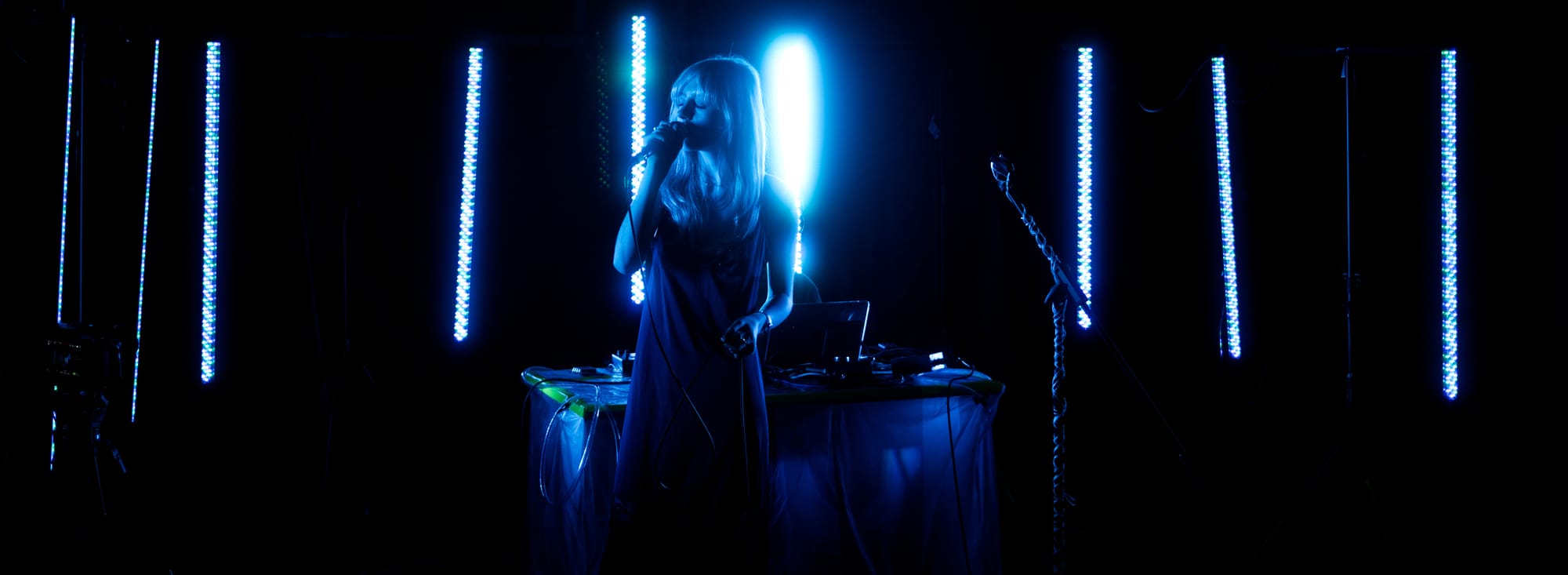
In a post-genre society, we keep uncovering the links between things that should have been obvious to begin with. The long list of Spud Murphy collaborators took the drone of Irish folk music traditions to the modern studio, summoning rumbling sub-bass and sharpened harmonies, so I should have known the writing on the wall, and stuck the phrase "laptop folk" into my back pocket years ago. And yet, when I went to see Rhoshi at the Crowbar Terrace and I got in early to see Pippa Molony, I didn't expect to hear an electronic, ambient, rolling take on the Foggy Dew.
I've heard music that's distinctly Irish from a thousand angles by this point. In July 2020, Lighght dropped bad dads and autocad, a bass-head percussive club tune with a lead synth line that sounds like it should be played on a concertina rather than an Ableton Push 2. I'd previously talked about Local Gods' label The Department of Energy; that same month they dropped Aghavrick Acid –
This four track Compact Disc contains sticks, stones, animal bones, ancient monuments, radio frequencies, rolling thunder, disembodied voices, running water, postcolonial ghosts, blood sacrifice, birdsong and Bealtaine frost. In other words there are two bangers about the War of Independence, a time-stretched hymn to the haunted Irish landscape and a psychedelic field recording made on a crisp May morning.
Those bangers about the War of Independence – drawing from footwork and dubstep, chopped up Raidió na Gaeltachta announcements and birdsong – are maybe essential background to how we got to Pippa Molony's Foggy Dew; Local Gods has a production credit on the Hungry Ghost EP's opening track, where whispered vocals layer and echo, ripping across the track like a violent wind, time-stretched reverberations of eternity humming in the background as Pippa whispers "time will undo us both; sit there and watch me."
Hungry Ghost is a project that touches a plethora of influences - the titular concept from Buddhism, one track taking its lyrics from Murakami and Kim Stanley Robinson, thoughts from Irish stories and half-remembered dreams. There's a running theme of yearning for another world throughout it:
The music speaks to a longing for more, for a place I don’t quite belong, for connection with otherworldly creatures—always yearning, never satisfied. It’s about a feeling of being on the outside, looking in, always on the cusp of something, but never there.
The record seems to complete a cycle that began with Rory Sweeney's Trash Catalogue albums, reprising their earlier collaboration Spring Came - an build-up of tension and resistance over the course of less than two minutes that instantly fades with the arrival of fresh light. Growth, rebirth, transformation.
The recurring notion of unstable ground, of searching for "home", seems to be everywhere in Irish music. When Lankum sang What Will We Do When We Have No Money? they noted it was first collected in 1973. When they sang "when the young people dance, they do not dance forever" on the same album, they noted:
The chorus of ‘The Young People’ first appeared as a kind of Scottish singalong in Daragh’s head one morning as he woke up, and not sure whether it was a traditional song he’d heard before, a composite of folk songs and melodies from his subconscious, or a completely original piece, he sang it into a dictaphone before it disappeared, like so many before it.
It would take me to go to a club in Crowbar Terrace and start talking about Lankum songs' murky histories as a result of it. It brings me great pleasure to say that the headliner Rhoshi completely shelled the dancefloor afterward with a set of all-new material, and the polychromatic pop of 2MANYCOLOURS was an absolute delight live. Still, doesn't that only highlight how intense it is to see The Foggy Dew in that same space mere minutes before?
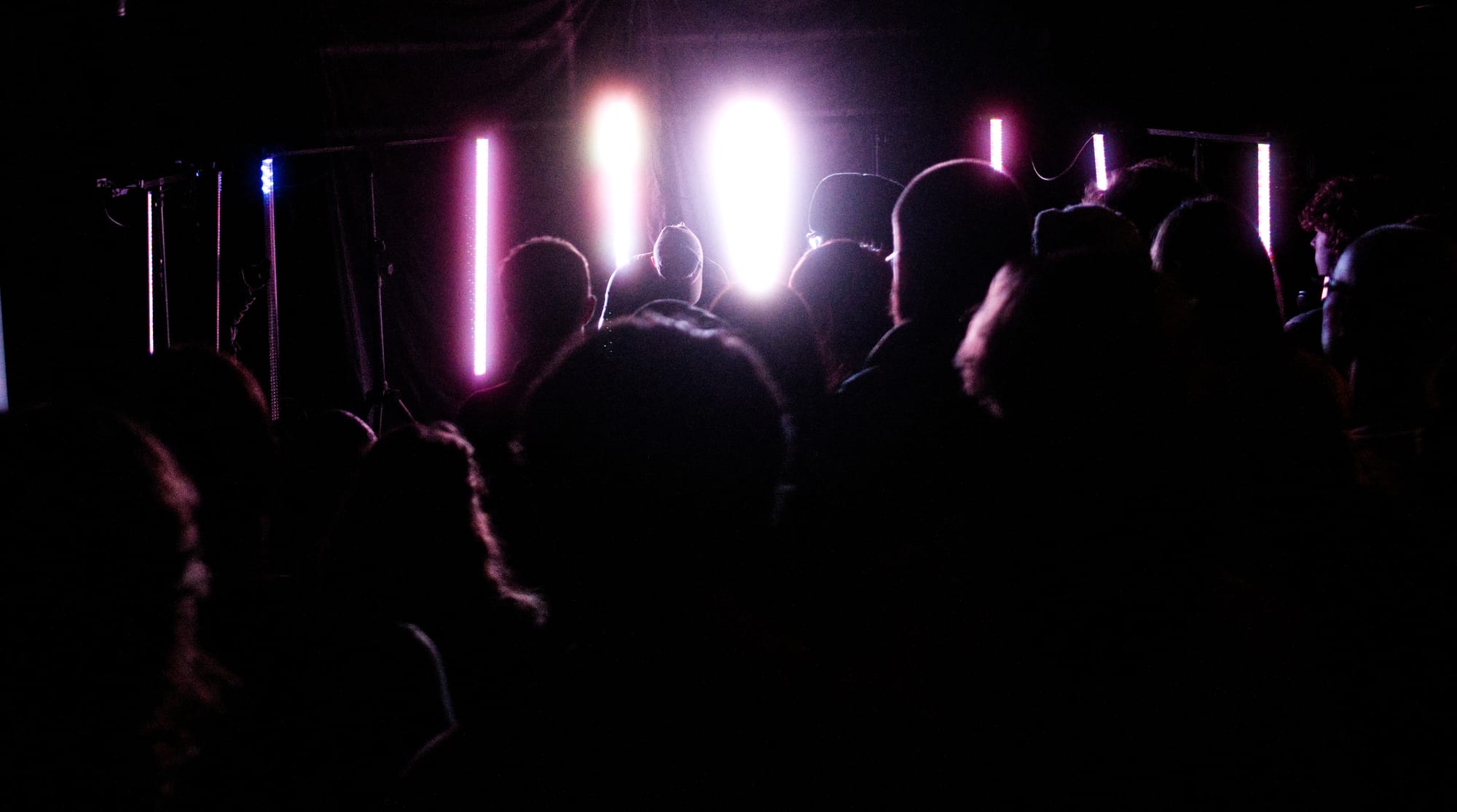
The only way to sound Irish is to be...
great another Irish music writer fawning over Róis. get over yourself
On CITÍ, from her recent record Mo Léan, Róis samples a recording of Kitty Gallagher keening for a dead child in the 1950s. Keening, an almost-lost tradition of vocal lament at funerals, is the central influence on Mo Léan. We have little recordings of it to go by to reconstruct it; many of them are included on this project, and in an interview with Ruari McCann for The Thin Air (with the banger title Singing And Dying Is What We Are Born For) she notes that these recordings alone don't allow us to see the tradition, only the shadow it casts. Many of the melodies on the record follow on from the recordings woven throughout, Róis' voice harmonising with the ghosts emerging from the tapes.
The three last recordings of the keeners themselves (an bhean chaointe) are also hugely inspiring. We will never know what the keeners sounded like, but I would imagine, as a thriving tradition in pre-Christian times, a fully experimental approach would have been taken, as a need to create catharsis in their own unique way.
Like in the works of Pippa Molony and Local Gods, these samples are transformed in the DAW into modern electronic music; ghostly warped Angelus bells and radio transmissions meet drones and time distortion, drum machines and dolmens. One of the projects' interlude tracks THE DEATH NOTICES does a radio show intro, only to lead into "Sorry to inform you, but there will be no death notices this morning" and play in reverse. Standout track FEEL LOVE is Celtic funeral hymn via SOPHIE metallic clang rhythm and Donna Summer all at once.
The only way to sound Irish is to be...
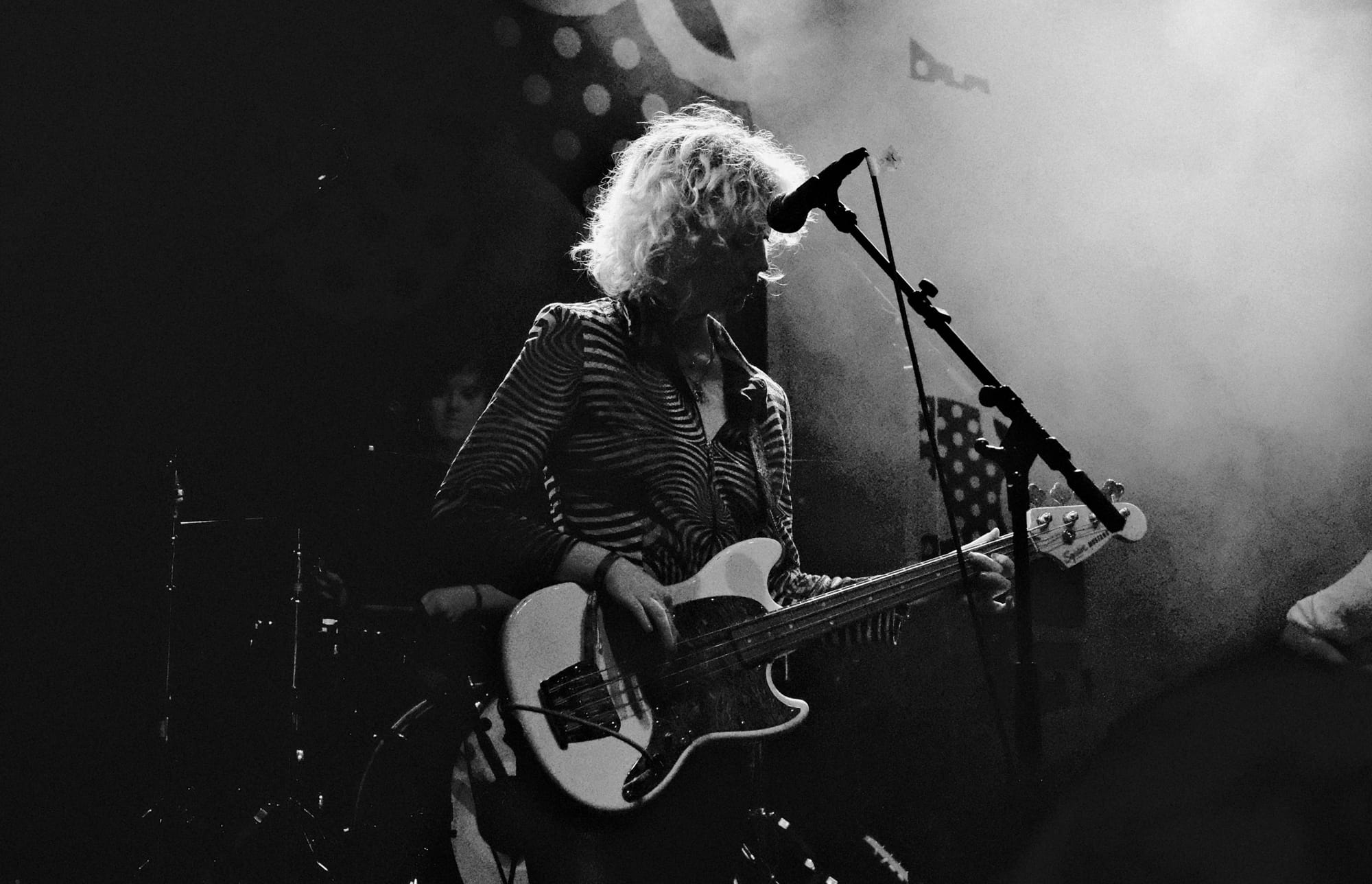
I spent a lot of Ireland Music Week making the same joke over and over again. "What's all this about 'Ireland Music weak'? I don't think Ireland Music is weak at all!" Heavy hitter after heavy hitter – Cork city hometown heroes Cliffords and D-unit expatriate Fynch made their case for the somewhat ludicrous "play a fuckin massive gig in Australia with Dermot Kennedy's help" project (side note, I believe Fynch deserved to do the Boston one too, if not just to wear a Denver Nuggets jersey performing in the TD Garden). On the Button Factory stage, I Dreamed I Dream were relentless, the audience in the palms of their hands for a set of weird Rebel no-wave noise. In the Workmans' Cellar Patrick stefan commands total silence as he begins constructing a song around a recorded interview with his grandmother. The crowds (where I was at least) felt a lot more local than industry. And it wasn't just dropping in and out to see already-familiar acts; people were taking it all in.
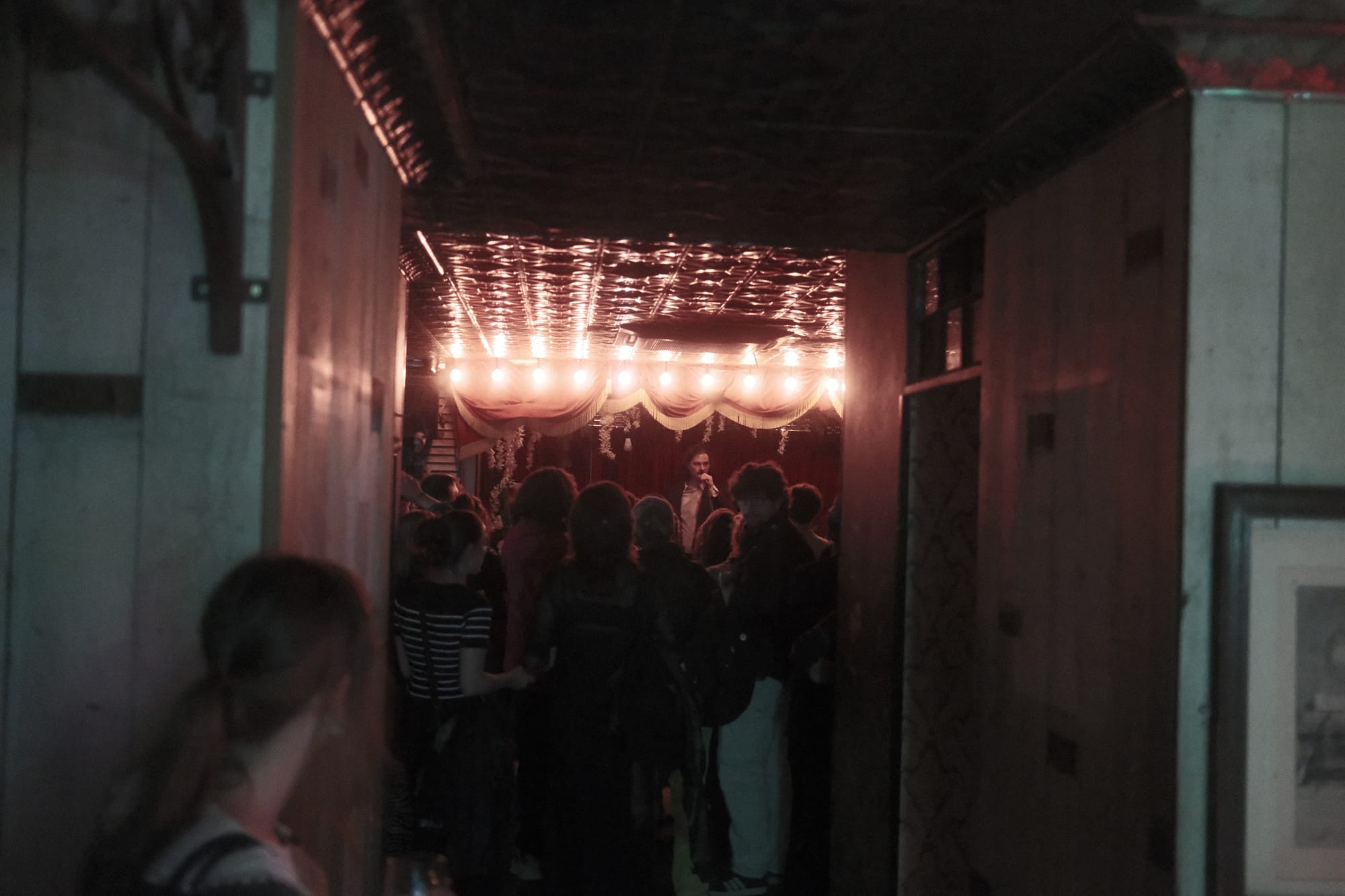
It's been a busy time hopping from gig to gig since and I hadn't really gotten the time to write about the breadth and depth of what I saw while bouncing from sbowcase to showcase with a camera and a punters' ticket, but for months now I've felt like Dublin has been constantly aflame with a million good things to see every moment. Experimental club nights, post-album triumphant takes to larger stages, artists just getting started in DIY spaces.
That’s what we want – to achieve a sense of community.
You think about it too hard and you'd almost get mad if the biggest band in the country couldn't find a local support act! As Noisey put it disastrously back in 2019, what's happening now is Too Good (And Too Loud) To Ignore.
It's List Season for a bunch of the other sites. I love Nialler9's one and I imagine The Thin Air have something beautiful cooking. I don't really do lists - but I'll be back to tell you what the Fourth Best Album Of The Year is, hopefully within the week. Not the consensus best one, but fourth best at least, because that's worth writing about too. Last year's was Rachael Lavelle's.
(Next year's might end up being Aoife Wolf's, she's got a band together with Elaine Malone and a few other titans and the recent single has sent anticipation through the roof.)
Slán. A shorter break until the next one. I better be seeing ye down at Merchy Christmas - buy music, and stay fuckin’ ‘diddly-diddly-aye’.


